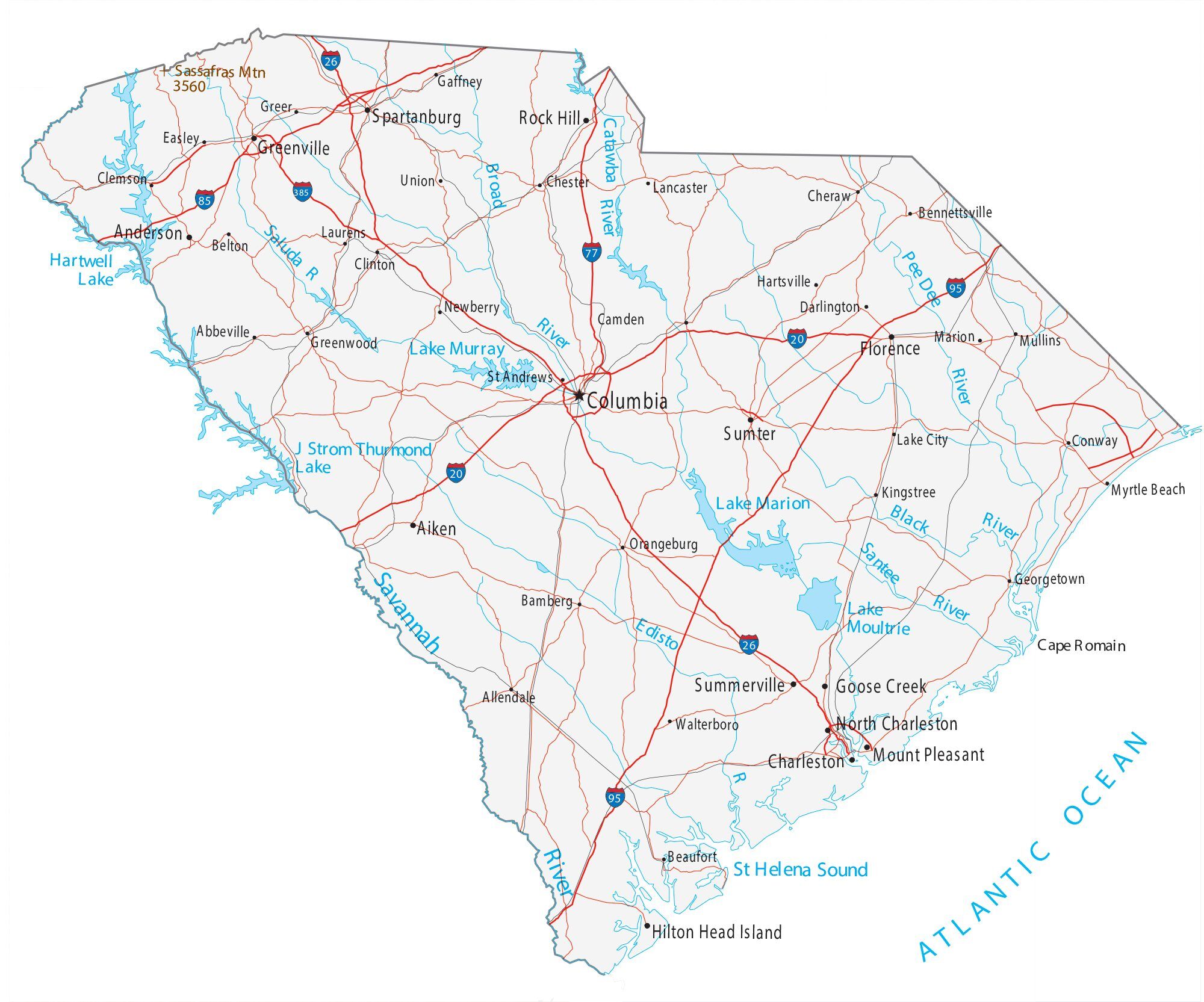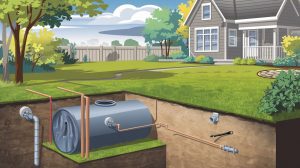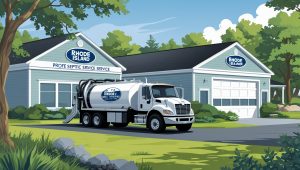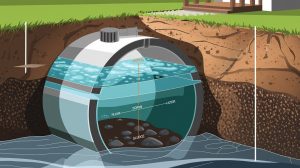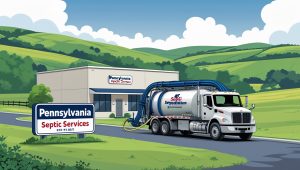Proper septic system management is essential for protecting South Carolina’s environment and maintaining public health. Understanding South Carolina septic tank regulations helps property owners navigate the installation and upkeep of their systems while ensuring compliance with state laws. This guide explains the key requirements for septic permits, tank placement, wastewater disposal, and more, ensuring you have all the information needed to make informed decisions.
Table of Contents
- State-Specific Regulations
- Compliance Information
- Cost Information
- Local Resources & Contact Information
- Supportive Resources
- FAQs About South Carolina Septic Tank Regulations
State-Specific Regulations
Installation Permits
South Carolina requires property owners to obtain a permit before installing or modifying a septic system. These permits are issued by the South Carolina Department of Health and Environmental Control (DHEC). The cost of a permit typically ranges from $100 to $300, depending on the complexity of the system and the site evaluation process.
To apply, owners must submit a detailed application that includes a site plan and soil test results. DHEC assesses the site’s suitability based on soil permeability, proximity to water sources, and other environmental factors. Site evaluations may include percolation tests to measure soil absorption rates, ensuring the property can support a septic system without environmental risks.
Septic Tank Size and Placement
South Carolina septic tank requirements mandate that the tank size be adequate to handle the household’s wastewater load. For example, a two-bedroom home typically requires a 750-gallon tank, while larger homes may need tanks of 1,000 gallons or more. For commercial properties, sizing is determined by the expected daily wastewater flow and specific business needs.
Placement rules ensure septic tanks and drain fields are located at safe distances from water wells, property lines, and bodies of water. Common guidelines include:
- 50 feet from water sources, such as wells or lakes.
- 5 feet from property boundaries to prevent encroachment.
- 100 feet from streams or other environmentally sensitive areas.
Proper placement reduces the risk of groundwater contamination and ensures the system functions efficiently. Drain fields must also meet slope and soil composition requirements, which may necessitate additional site preparation for certain locations.
Wastewater Disposal
South Carolina’s wastewater management laws regulate how treated wastewater is disposed of. Conventional systems must ensure wastewater does not contaminate groundwater or surface water. Advanced systems, such as aerobic treatment units or mound systems, may be required for properties with challenging soil conditions or high water tables.
Strict rules prohibit untreated wastewater discharge, which can lead to severe environmental damage. Homeowners must maintain a functioning drain field to allow proper filtration of wastewater before it re-enters the water cycle. In some areas, homeowners may need to install additional features, like effluent filters or grease traps, to meet local environmental standards.
Maintenance and Pumping
The South Carolina health department septic guidelines recommend regular maintenance to prolong system life and prevent failures. Tanks should be inspected and pumped every 3 to 5 years, depending on usage and household size. For larger families or properties with higher water usage, pumping may be required more frequently.
Routine maintenance includes inspecting the tank’s structural integrity, checking for leaks, and ensuring all components are functioning properly. Homeowners should avoid flushing harmful substances like grease, chemicals, and non-biodegradable items to maintain optimal system performance. Neglecting maintenance can lead to system failure, costly repairs, and environmental hazards.
Compliance Information
Legal Guidelines
South Carolina’s septic tank laws require homeowners to ensure their systems are correctly installed and maintained. Non-compliance can result in fines, property damage, and potential health hazards. It is crucial for property owners to familiarize themselves with local codes and adhere to DHEC guidelines to avoid legal issues.
Potential Fines and Penalties
Failure to adhere to South Carolina septic tank requirements can lead to penalties. Fines vary based on the severity of the violation, with larger penalties applied for environmental contamination. For example:
- Fines may exceed $1,000 for untreated wastewater discharge.
- Non-compliance with permit requirements can result in additional penalties and mandatory repairs.
South Carolina’s environmental regulations prioritize protecting natural water resources. Homeowners may face stricter penalties if their actions harm nearby streams, wetlands, or groundwater. Repeated violations can lead to legal action, and in severe cases, authorities may require system replacement at the owner’s expense.
Cost Information
Permit Fees
Obtaining a septic permit in South Carolina typically costs between $100 and $300. This fee includes the site evaluation and application processing. Complex installations or larger properties may incur additional fees due to extended evaluation requirements.
Pumping Costs
Routine septic tank pumping in South Carolina averages between $200 and $500, depending on tank size and location. Homeowners in rural areas may experience higher costs due to limited service provider availability. Discounts may be available for homeowners who schedule inspections and pumping simultaneously.
Installation Costs
The cost of septic installation in South Carolina varies based on the system type and site conditions:
- Conventional systems: $3,000 to $8,000.
- Advanced systems (e.g., mound or aerobic systems): $10,000 to $20,000.
These estimates may increase if additional site preparation, such as tree removal or soil amendments, is required. Additional costs include effluent filters, risers for easier access, and soil remediation if initial tests reveal unsuitable conditions.
Local Resources & Contact Information
Key Agencies
- South Carolina Department of Health and Environmental Control (DHEC): Oversees septic system regulations, permits, and environmental compliance.
- Website: scdhec.gov
- Phone: (803) 898-3432
- Local Health Departments: Offer site evaluations and assistance with septic permits.
- Contact information varies by county. Visit DHEC’s website for specific locations.
Certified Septic Professionals
Homeowners can find certified septic installation and maintenance professionals through DHEC’s approved vendor list or local directories. Always verify licenses and certifications before hiring a contractor. Many providers also offer free consultations and emergency services, making them a valuable resource for homeowners.
Supportive Resources
- DHEC Septic System Handbook: A comprehensive guide to septic system regulations and maintenance. Downloadable from the DHEC website.
- Environmental Protection Agency (EPA): Provides general resources on septic system care and environmental protection.
- Trusted Septic Service Providers: Many certified professionals offer free consultations and provide valuable resources for homeowners, including detailed maintenance schedules and troubleshooting tips.
- Infographics and Guides: DHEC frequently updates its website with visual aids and downloadable content to assist homeowners with understanding septic system requirements.
Conclusion
Adhering to South Carolina septic tank regulations is crucial for protecting the environment and avoiding costly penalties. By obtaining the proper permits, maintaining your system, and staying informed about state laws, you can ensure your septic system operates efficiently for years to come. Take action today to remain compliant and safeguard your property’s value. Partnering with certified professionals and leveraging state resources can make this process seamless and stress-free
FAQs About South Carolina Septic Tank Regulations
Do I need a permit to install a septic system in South Carolina?
Yes, you must obtain a permit from the South Carolina Department of Health and Environmental Control (SC DHEC) before installing a septic system. This ensures compliance with state wastewater management and health guidelines Home & Garden Information Center.
How often should I have my septic system inspected and pumped?
Routine inspections and pumping are recommended every 3 to 7 years, depending on household usage and system size. Regular maintenance helps prevent system failures and costly repairs Extension | UGA Cooperative Extension.
What are the signs that my septic system might be failing?
Common indicators include slow drains, sewage backups in your home, bad odors around your septic system, and areas of greener or dead grass near the drainfield. Such issues may point to an overloaded or malfunctioning septic system Home & Garden Information Center.
Are there specific guidelines for the drainfield placement in South Carolina?
Yes, the placement of the drainfield must adhere to SC DHEC regulations to ensure proper wastewater absorption. Drainfields typically require a safe distance from wells, property lines, and living spacesExtension | UGA Cooperative Extension.
Can I repair a septic system myself, or do I need a licensed contractor?
In South Carolina, it is prohibited for unlicensed individuals to perform septic system repairs, including the pumping, removal, or disposal of septage. You must hire a licensed contractor to handle inspections, repairs, and pumping tasks Home & Garden Information Center.
How do I locate my septic system if it’s buried underground?
Septic systems can be located by looking for slight depressions in the yard, variations in soil color, or greener grass patches. Your local health department or the original home builder may also have a system map. Professional contractors can use specialized tools to find the system accurately Extension | UGA Cooperative Extension.
What types of materials are commonly used in septic tanks in South Carolina?
Most septic tanks are made of concrete, but they can also be constructed from fiberglass or plastic. Each material has its pros and cons, such as cost, durability, and lifespan Extension | UGA Cooperative Extension.
Are there any environmental protections I need to follow for my septic system?
SC DHEC regulations require adherence to wastewater management guidelines to prevent environmental contamination. These South Carolina Septic Tank Regulations includes safeguarding nearby water sources and ensuring proper disposal of wastewater and sludge.
What should I do if I notice bad odors coming from my septic system?
Bad odors are usually a sign of system issues. It is recommended to contact a licensed septic contractor who can inspect your system and identify problems such as broken seals, overflow, or failing drainfieldsHome & Garden Information Center.
How can I maintain my septic system to prevent costly repairs?
Preventative maintenance includes periodic inspections, regular pumping every 3-5 years, minimizing harmful substances like chemicals and non-septic-safe items, and practicing good waste disposal habits
For detailed guidance and contractor information, visit the SC DHEC website here
Monthly Septic Maintenance Plans
Safe Chemicals for DIY Septic Cleaning
Directory | Rhode Island Septic Service Providers : Best Professionals
High Septic Tank Levels: How to Measure and Interpret Them for System Health
Chemicals to Avoid in Septic Systems
Directory | Pennsylvania Septic Service Providers | Part 3

